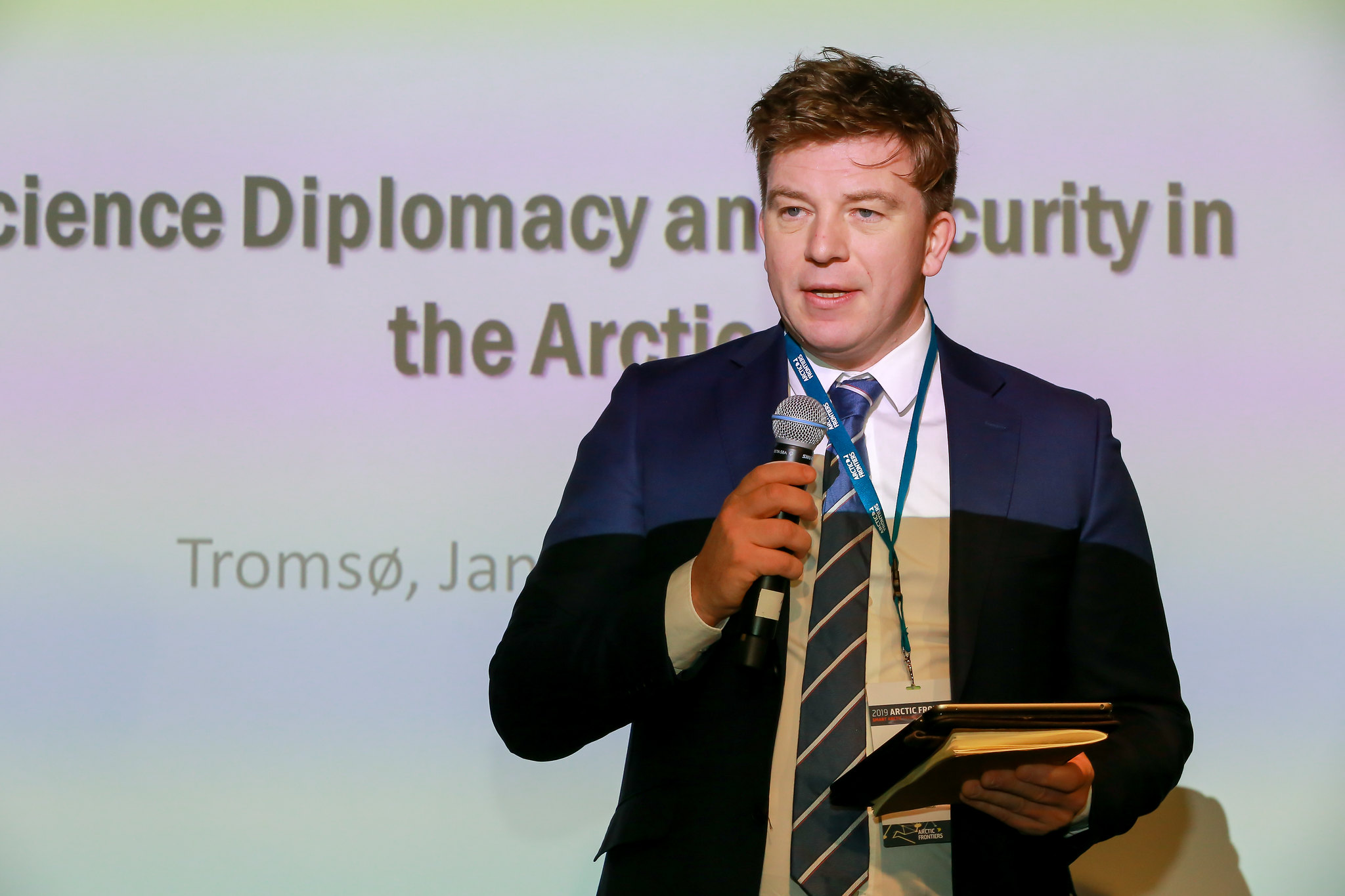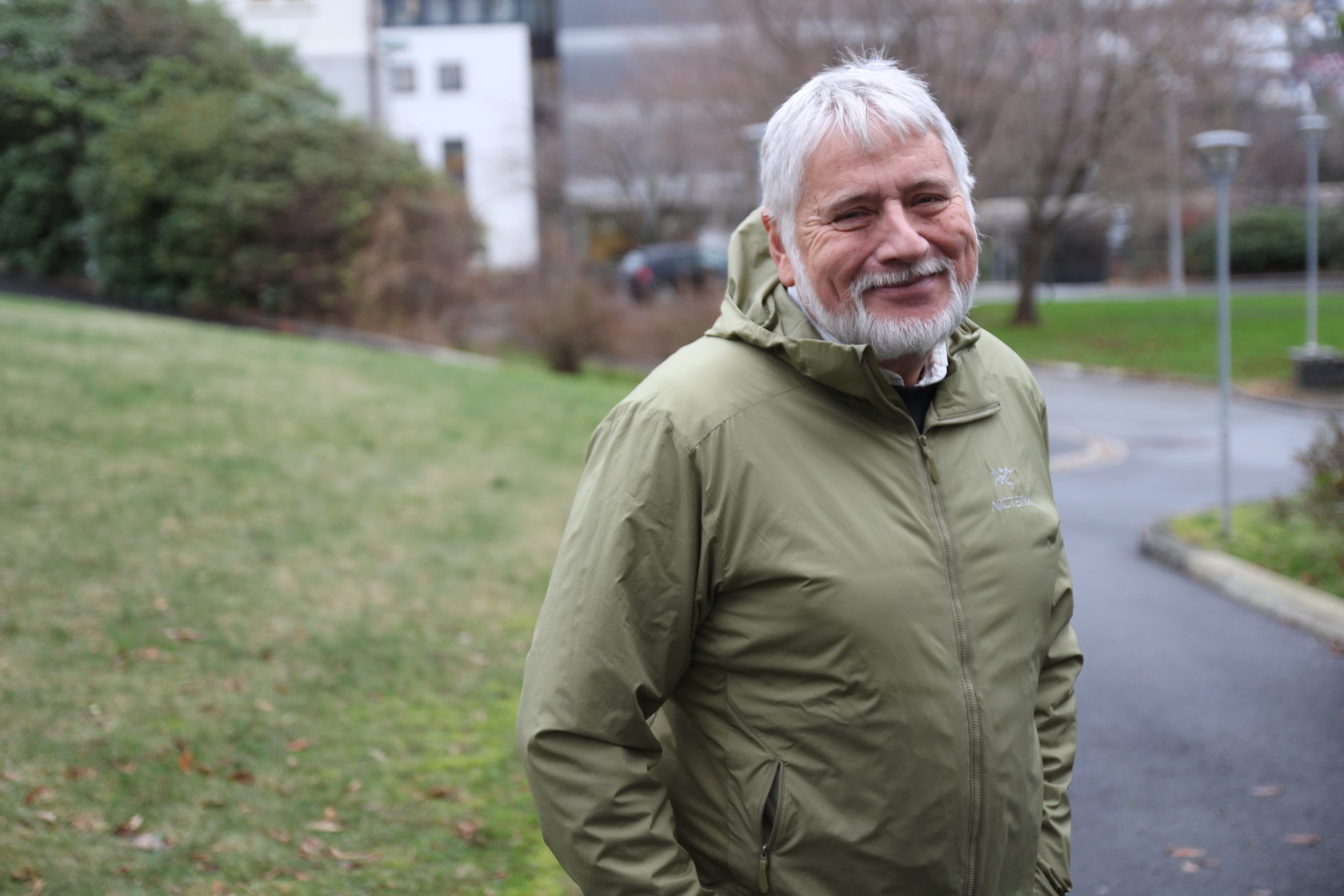400 000 NOK grant from UArctic secures further research
The project commissioned by the Academia Europaea Bergen Hub, “The Future of Science Diplomacy in the Arctic”, is the topic of a recent episode of the SAPEA podcast. “Genuinely one of the most important topics I’ve ever discussed on this podcast”, says Toby Wardman, host of the SAPEA podcast, about his discussion with project manager Ole Øvretveit and AE-Bergen Hub director Eystein Jansen.
The podcast starts with some general information about the Arctic and how it is governed by the 8 Arctic countries, as well as the function of the Arctic Council. This as a background for the discussion on the current state of Scientific Diplomacy in the Arctic and the current lack of exchange of scientific data from the Arctic as a consequence of the Russian invasion of Ukraine.
Climate data missing
– In the absence of complete climate data from the Arctic, if a situation where Russian climate date are missing continues several years, we’ll miss data on the state of the permafrost, the emission of greenhouse gasses from the permafrost, the reflectivity of the planet and the speed of the changes, AE-Bergen Hub director Eystein Jansen says in the podcast.
– Is there any kind of unified view in the scientific community in terms of how to handle this situation, Wardman asks in the podcast.

Ole Øvretveit, Manager of Arctic Science diplomacy project, Academia Europaea
– My impression from the people I’ve talked to for our report, is that everybody has the deepest understanding that there needs to be strong reactions from the West against the Russian invasion of Ukraine. It is still unprecedented that science collaboration has been shut down overnight as a part of sanctions, Ole Øvretveit says.
You can be updated on several other aspects of this topic from podcast, available from the SAPEA website, but also on Spotify and YouTube.
Earlier this spring, “The Future of Science Diplomacy in the Arctic” project from the AE-Bergen Hub was also awarded a grant of 400 000 NOK from UArctic, for further research on the topic.
This project was initiated in the autumn of 2022, and has already resulted in a side-event at the Arctic Frontiers Conference, and a report that will be available in early autumn. The grant from UArctic will secure the continuity of the project, as well as open new avenues of research and new partnerships.
The summary of the project reads: “The tight connection between science and diplomacy in the Arctic has traditionally helped reduce geopolitical tensions and facilitated international resource management. However, after Russia’s invasion in Ukraine, the Russo-western relationship has entered an ice-cold face. Due to the war and international sanctions, science, science-informed decisions, and science diplomacy suffer severely. Reduced international Arctic science collaboration may have severe consequences for climate research and other important scientific topics like social science and ocean ecosystems.
The objective of the project is to understand what the effects of war are on scientific collaborations and the volume and value of arctic science in the north. And, in the light of various discussions in the scientific community, to elevate a discussion on what principles should be the foundation for political decisions on science collaboration across borders in turbulent times. And finally, what may become the characteristics of the future Arctic science collaboration architecture”.
For the continued project, the project coordinator will be AE-Bergen Hub director Eystein Jansen, while the project manager is political scientist Ole Øvretveit.
Working with international experts
– First and foremost, this grant and the continuation of the project will give us the opportunity to work in a more structured and strategic way with some of the best experts on this issue internationally. With academic partners from both Germany, Canada, and the US, and also organizations representing indigenous experience and competence, we can include bothh broader and sharper perspectives on this issue, Ole Øvretveit says.
The partners in the continued project are the Alfred Wegner Institute, Germany, Nord University, Norway, Dartmouth College, USA, The Macdonald-Laurier Institute, Canada as well as the international NGO International Center of Reindeer Husbandry.

Eystein Jansen, Academic Director of the AE-Bergen Hub.
– The issue of Science Diplomacy in the Arctic and how this is affected by the freeze in the Russo-western relationship following the Russian war in Ukraine, will probably be with us probably for years to come. The longer this conflict and the resulting political instability lasts, the harder it will be to restart Science diplomacy efforts, Eystein Jansen says.
– The grant from UArtic will give us a two year perspective on the project. This will give us opportunity to observe the ongoing events over a longer time frame, Jansen adds.
– 45 percent of the Arctic is Russian territory. It is a cause for great concern that data from Russian scientists now are missing in most international projects, particularly in climate research. We have seen earlier that climatic change in the Arctic have been indicators of developments affecting other areas later. With the continuation of the project, we can now broaden our scope to look at the effects of the freezing of Arctic Science Diplomacy on research both in terrestrial and oceanographic areas, Ole Øvretveit says.
